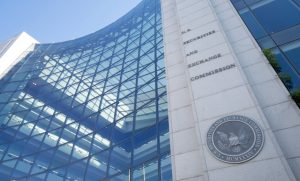The government’s Covid response schemes inadvertently created unprecedented opportunities for fraud – only now is the potential scale of that fraud beginning to come to light. The UK Treasury has launched a remarkable 23,000 inquiries into potentially fraudulent payments made during the pandemic. Last year, HMRC announced that it was investigating 27,000 cases of possible fraud relating to the furlough scheme alone.
Reports of these alleged frauds are now a regular feature in the press:
- The Financial Times recently revealed concerns about how a mystery “group of companies set up by an obscure entrepreneur received as much as £40m in furlough cash in a single month this year, despite little public evidence that the businesses have any staff.” The four companies in question are understood to have received between £20 million and £40 million in May 2021 from the UK government’s Coronavirus Job Retention Scheme – despite having only been registered to a virtual mailbox service in London.
- In May this year, two people were arrested for a suspected furlough scheme fraud which involved cheating the public revenue, VAT evasion and money laundering to the value of £3.4 million. More than £6m in bank accounts held by the two individuals has been frozen.
- There have been a series of arrests in relation to bounce back loans taken under false pretences: it is anticipated that between 35% and 60% of these will remain unpaid due to fraud and credit issues. The NCA recently arrested three men who worked for a financial institution in London under suspicion of using their “specialist knowledge” to fraudulently misappropriate around £6m from the scheme.
PAC Raises Concerns About The Risk Of Fraud
In October 2020, the House of Commons’ Public Accounts Committee (PAC) raised concerns about the risk of fraud: MPs warned that "hastily drawn up economic support schemes” allowed "unacceptable room for fraud against taxpayers". The government responded by saying that, "we make no apology for the speed at which [the schemes] were delivered," while claiming that the government had rejected "thousands of fraudulent claims". However, despite the PAC’s clear warnings, it seems that the government’s anti-fraud measures were inadequate or misdirected.
More than £70 billion has now been distributed through the furlough scheme. HMRC has estimated that 5-10 % of furlough payments were claimed fraudulently. This suggests that up to £7 billion may have been claimed fraudulently. Towards the end of last year, National Audit Office (NAO) reports suggested that criminal organisations had siphoned off more than £3 billion from the government’s Covid support measures, while 9% of furloughed workers admitted working for their employer while on furlough. HMRC has confirmed that, before the end of March 2021, it opened more than 12,000 investigations into fraud and error relating to the Coronavirus Job Retention Scheme (CJRS), Self-Employment Income Support Scheme and Eat Out to Help Out Scheme.
While misuse of the fiscal support measures is in itself not unexpected, these estimates indicate that it has been significantly more widespread than anticipated – not least because the measures were extended as the pandemic waged on.
The Introduction Of A Taxpayer Protection Taskforce
In response to concerns of misuse, in February 2021, Chancellor Rishi Sunak announced a £100 million Taxpayer Protection Taskforce, with 1,265 staff working within HMRC to detect fraud. However, given the scale, complexity and changing nature of the government’s Covid-19 response schemes, the extent to which fraud of this nature was reduced during 2021 is unclear.
In addition to frauds related to the government’s pandemic support measures, fraud is believed also to have increased in the last 18 months within the UK’s existing welfare programmes. The PAC’s 30 June 2021 report notes that fraud and error within Universal Credit rose by £3.8 billion to an all-time high of £5.5 billion between April 2020 and March 2021. That is an increase of more than 200%.
It was also reported that the Counter Fraud Function undertook a Global Fraud Risk Assessment across 206 COVID-19 response schemes, with an estimated total value of £387 billion. A total of 16 schemes were risk-assessed as having a high or very high fraud risk. This represents 57% (£219 billion) of the £387 billion. The increased risk was thought to be in part due to the government relaxing or modifying controls in place to prevent or detect fraud and error and prioritising its COVID-19 response over business-as-usual compliance activity.
A Decline In UK Businesses Registered For Insolvency
Interestingly, the number of companies registered for insolvency in the UK actually fell by 27% compared to 2019, suggesting that unviable businesses were artificially kept solvent by pandemic support measures. The government has recently given new powers to the Insolvency Service to investigate the conduct of directors of companies that are suspected to have taken out bounce back loans shortly before the dissolution of the company – which loans have not been, and are unlikely to ever be, repaid.
The trends outlined above are consistent with the rise in civil fraud claims that we are seeing, and expect to continue to rise. Common examples are authorised push payment frauds by way of vishing, phishing or smishing, whereby (typically) either a fraudster tricks a person into divulging information enabling the fraudster to make a payment from the victim’s account, or a fraudster inserts themself between the victim and the intended recipient of a payment. Between April 2020 and March 2021, there was an 83% rise in phone and text scams of this nature: fraudsters have taken advantage of people’s habits caused by the pandemic, remote working and an increased online and virtual presence. Using online search engines and social media adverts, fraudsters have misappropriated approximately £535 million in investment frauds, where a victim is tricked into wrongly thinking he or she is making a genuine investment with anticipated high returns. These scams often include bitcoin or other cryptocurrencies.
The courts are increasingly seeing examples of payment scams and being asked to consider the scope of the duty of the paying bank (see for example the recent cases concerning the Quincecare duty) and the role or position of the recipient bank. Issues for the paying bank may include negligence, the Payment Services Regulations and their actions considered in the context of relevant codes of conduct. For the recipient bank, courts may need to consider unjust enrichment, knowing receipt, dishonest assistance or even negligence (though it has to date been more difficult to establish any duty of case on the recipient bank).
The Role Of Crypto In Fraud
A significant percentage of funds misappropriated in these various fraudulent ways is thought to have been converted into crypto assets. The anonymous and decentralised nature of crypto makes it notoriously difficult to identify, trace and – importantly – link back to the fraudster. However, in recent years we have seen legal, investigatory and technology specialists working creatively together to track these assets down and seize them. Crucially, the English courts are at the same time continuing to adapt their tools to crack down on frauds involving crypto assets, and we expect to see this trend continue in the coming months. Useful interim tools in this context include orders for disclosure (Norwich Pharmacal / Bankers Trust orders against the relevant exchange or the recipient bank), and proprietary and freezing orders against individuals, banks or persons unknown.
The true scale of fraud committed during the pandemic, including against the UK government during the pandemic is yet to be known. It may take many years for the enforcement agencies to catch up with the fraudsters and those who wrongly claimed or overclaimed, and for individuals and companies to uncover frauds carried out against them and take legal action. We anticipate an increase in complex civil and criminal cases in the years ahead.
About the author:
Kate Gee, counsel at Signature Litigation, has over a decade of experience acting in complex, high value, cross border disputes, including civil fraud and asset tracing claims, general commercial litigation and banking litigation.





















